Features of choosing linoleum with a tile pattern
Today, linoleum is one of the most popular floor coverings. It is divided into three types depending on the area of application and the level of required load:
- Household. Thickness is about 1.5 cm. It is intended for rooms with low traffic: usually, these are residential apartments and houses. The strength level is low, but the service life is at least 5 years.
- Semi-commercial. More wear-resistant due to the dense backing and a special protective composition that covers the surface. Such material is laid in rooms with increased loads.
- Commercial. Suitable for shopping centers, medical and educational institutions, where the material is subjected to maximum weight load every day. The highest quality, service life of about 40 years.
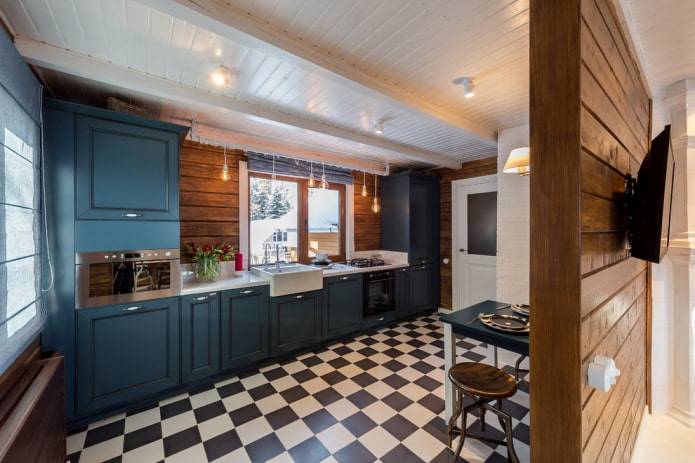
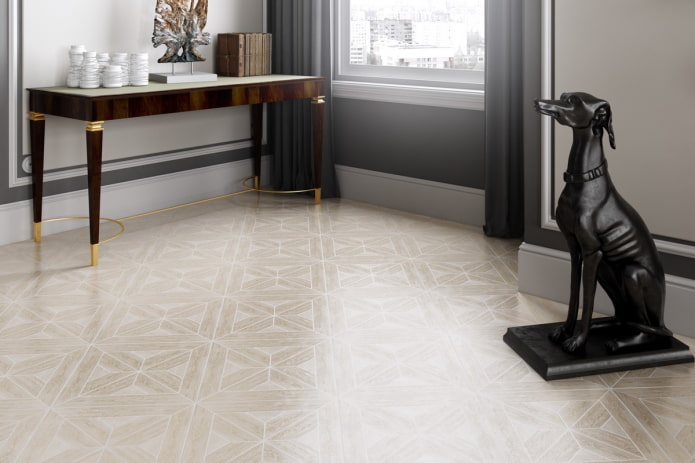
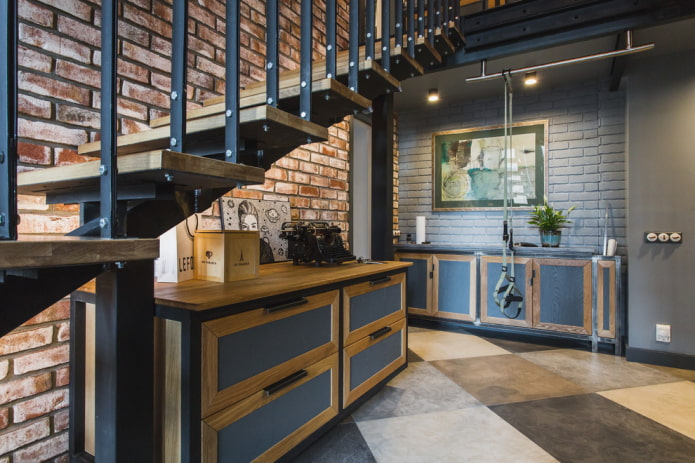
Pros and cons
Linoleum under the tile combines many advantages, but also has several significant disadvantages:
Combines the appearance of ceramic tiles and the unique characteristics of rolled linoleum.
Easy to install and dismantle, does not require special skills. Unlike tiles, there is no need to work with seams.
It has good heat and sound insulation thanks to the backing, which retains heat and absorbs sounds.
It is easy to clean and is moisture resistant.
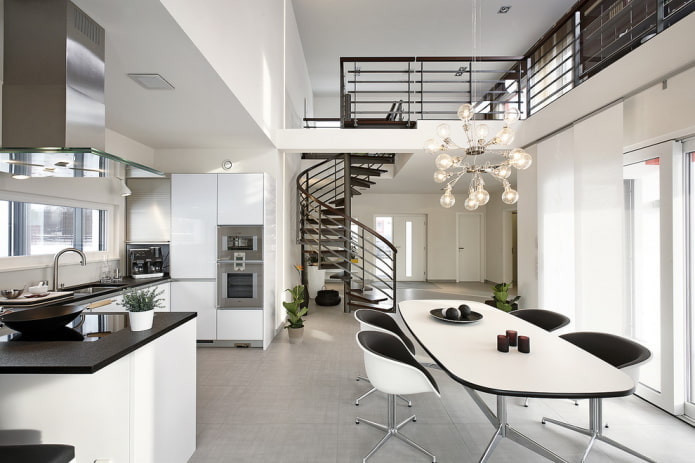
Design, shapes, patterns
The design of the flooring differs in the types and sizes of “tiles”, as well as the variety of patterns: linoleum can be striped, patterned, checkered, diamond-shaped or in the form of honeycombs.
Squares
The pattern in the form of squares can be called traditional. It is suitable for both Provence and minimalist interiors. The squares serve as inserts on a plain background or alternate, making up a cellular pattern.
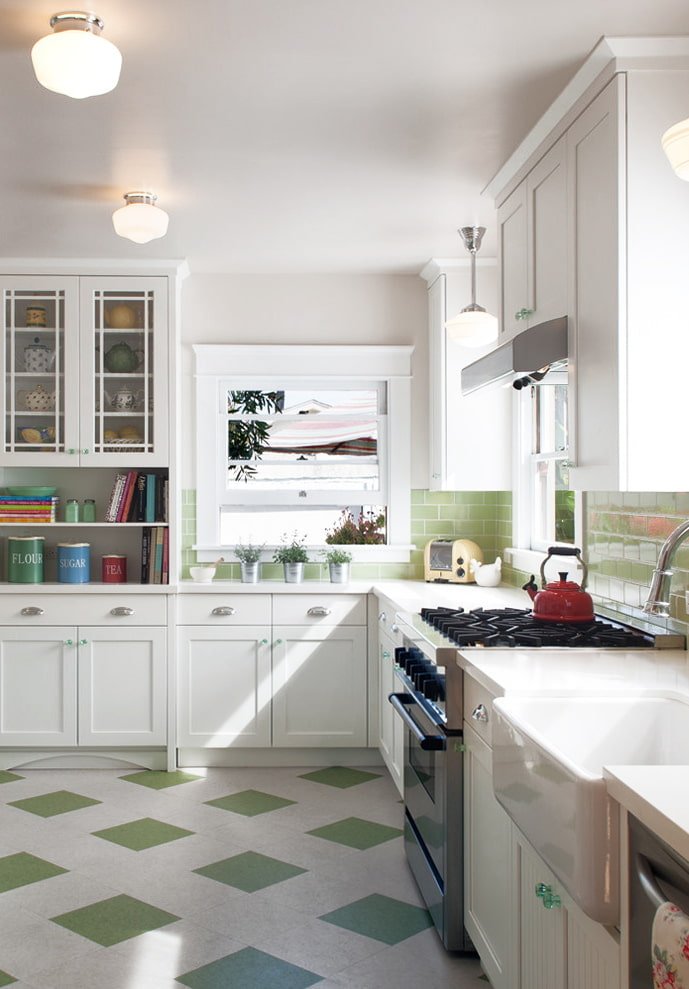
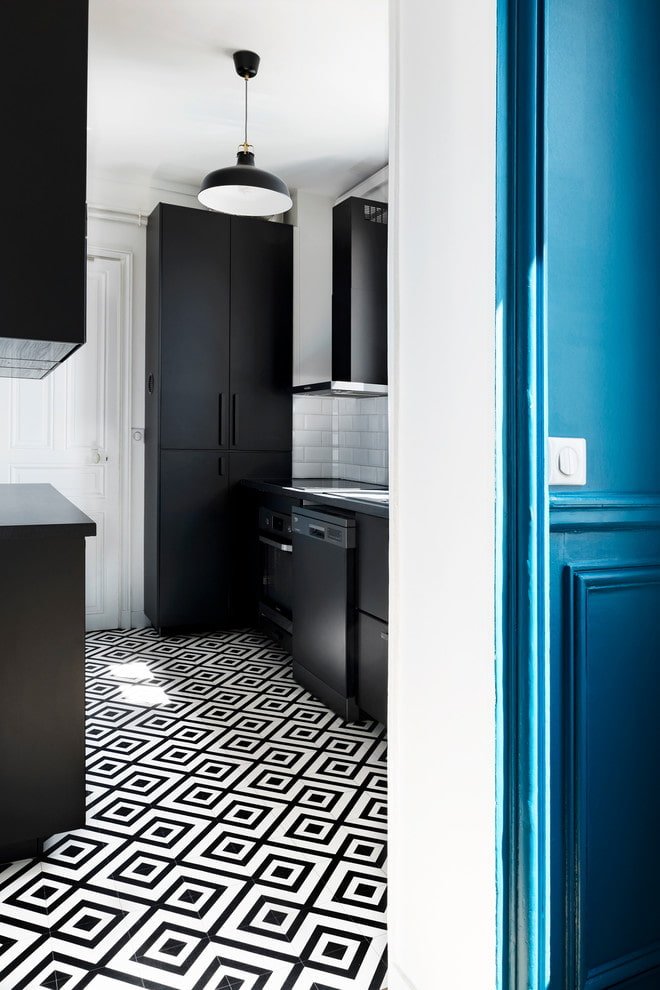
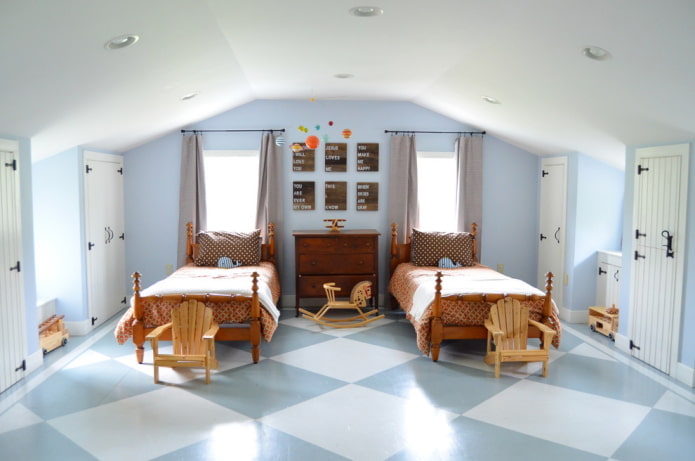
The photo shows a nursery with glossy linoleum made of large squares.
Rhombus
A stylish and therefore common option with diamonds that are connected to form a three-dimensional geometric pattern.
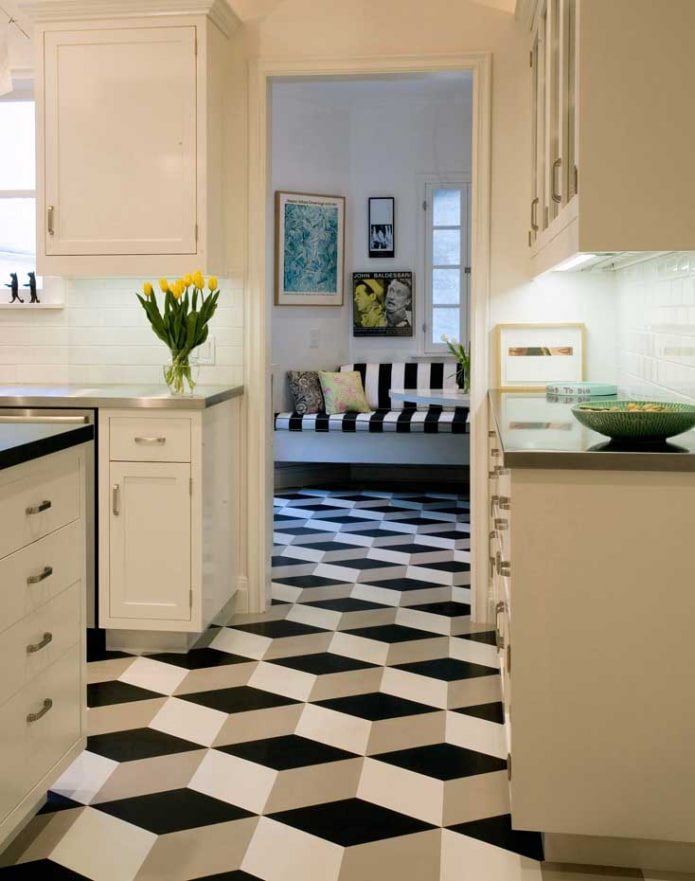
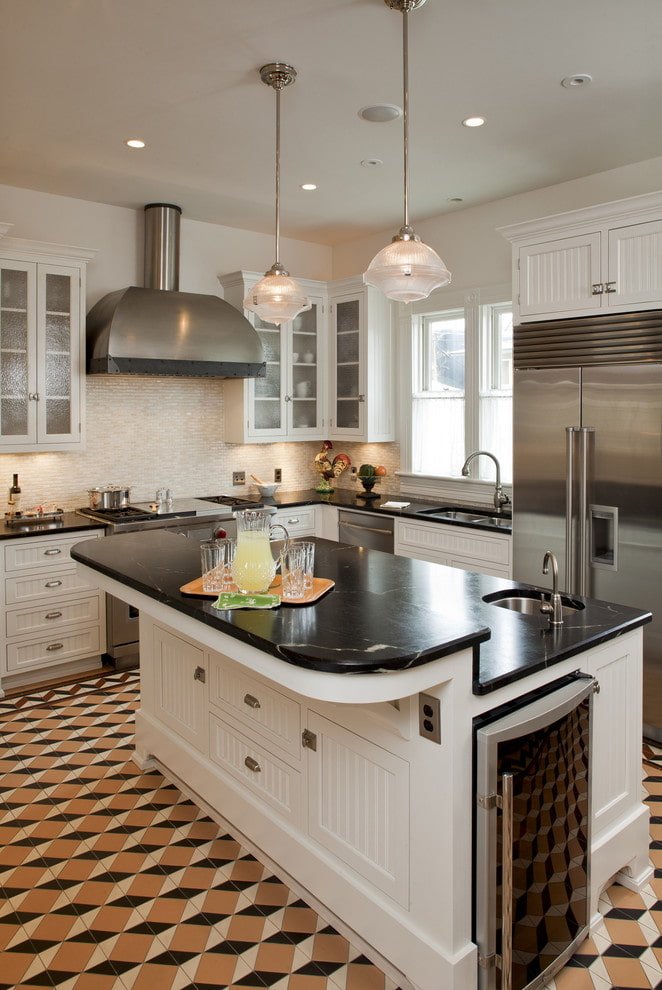
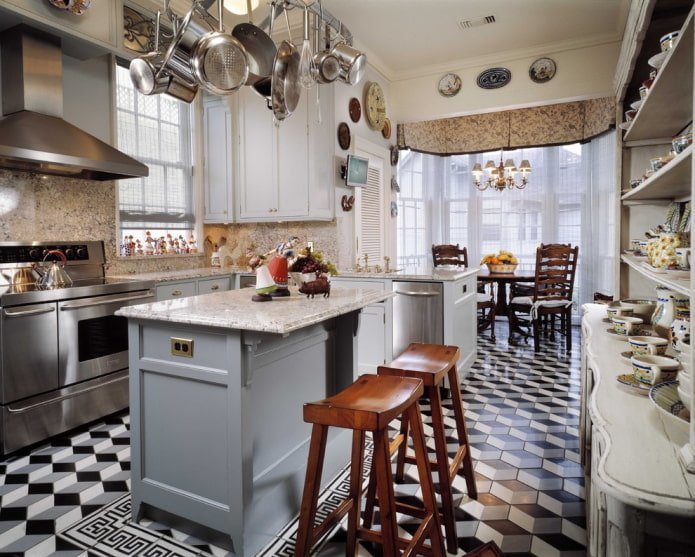
The photo shows textured linoleum that imitates tiles made of graphic rhombuses.
Under marble tiles
The coating with imitation marble or products with marble chips looks expensive and natural.
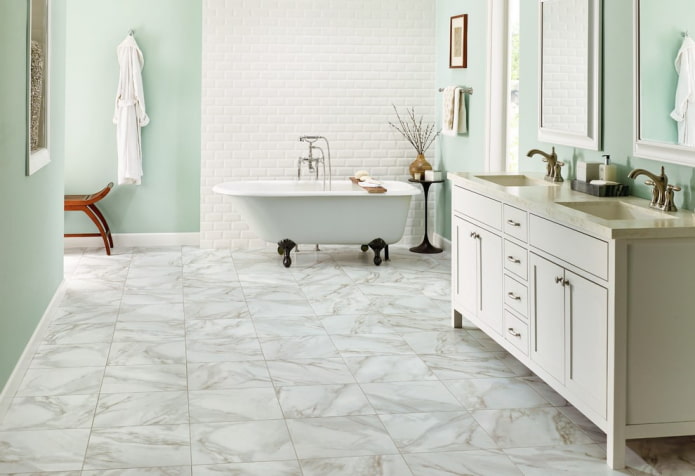
The photo shows a light bathroom with linoleum in the form of white marble tiles. Thanks to the texture, the coating looks even more expressive.
Under porcelain tiles
Imitation porcelain tiles look convincing due to the matte coating and pattern under natural stone.
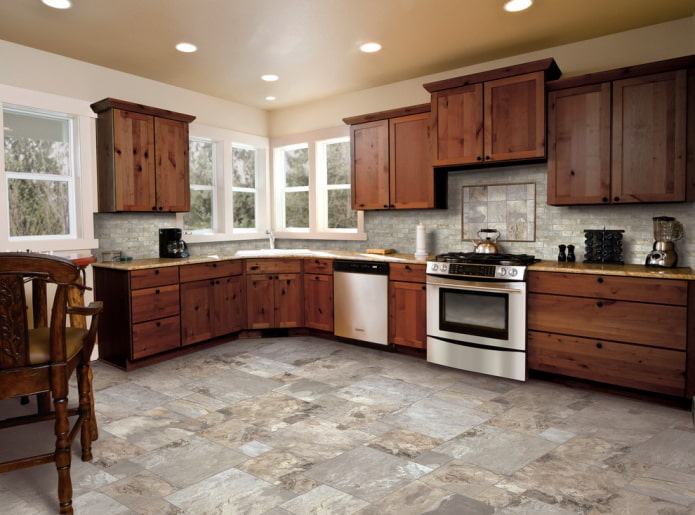
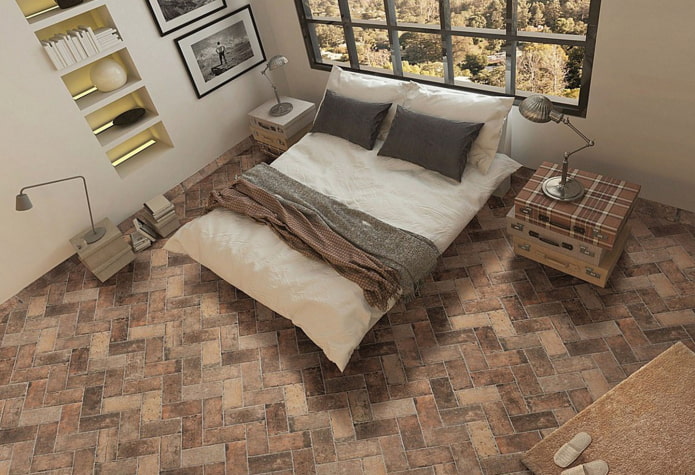
Patchwork
Multicolored patchwork adds coziness and bright colors to the interior.
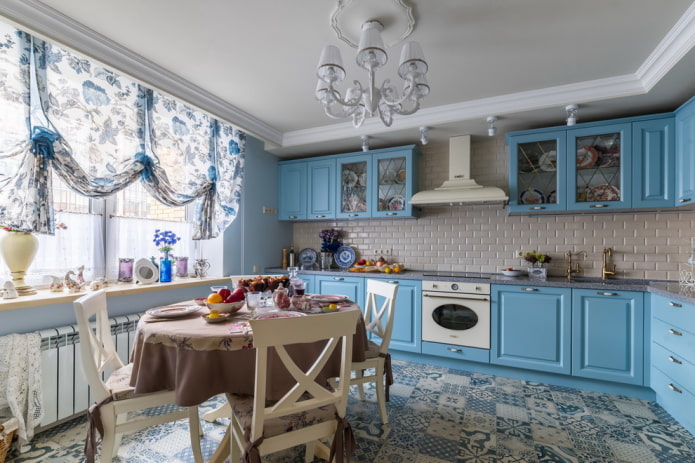
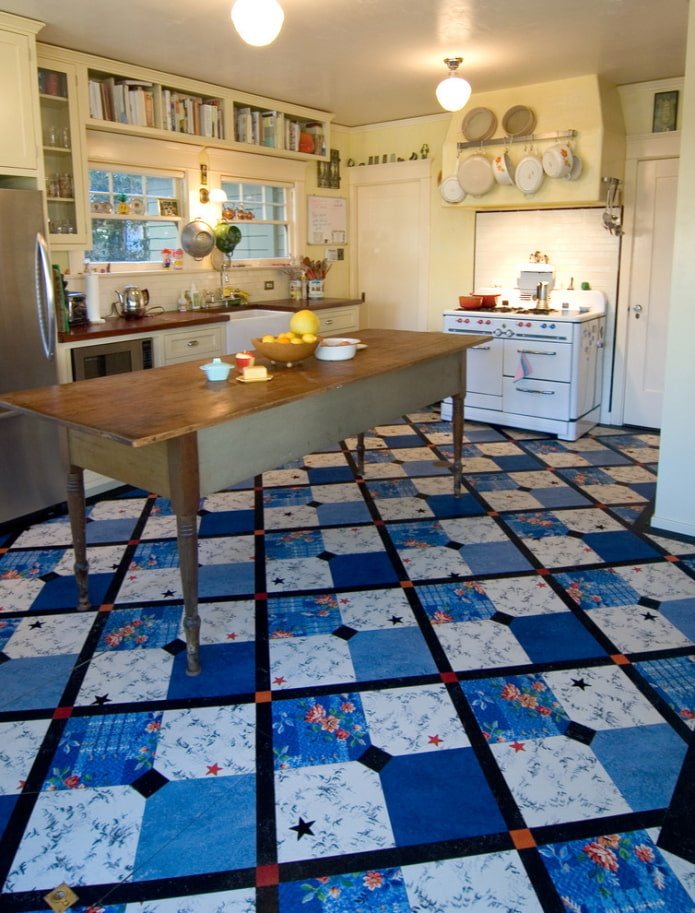
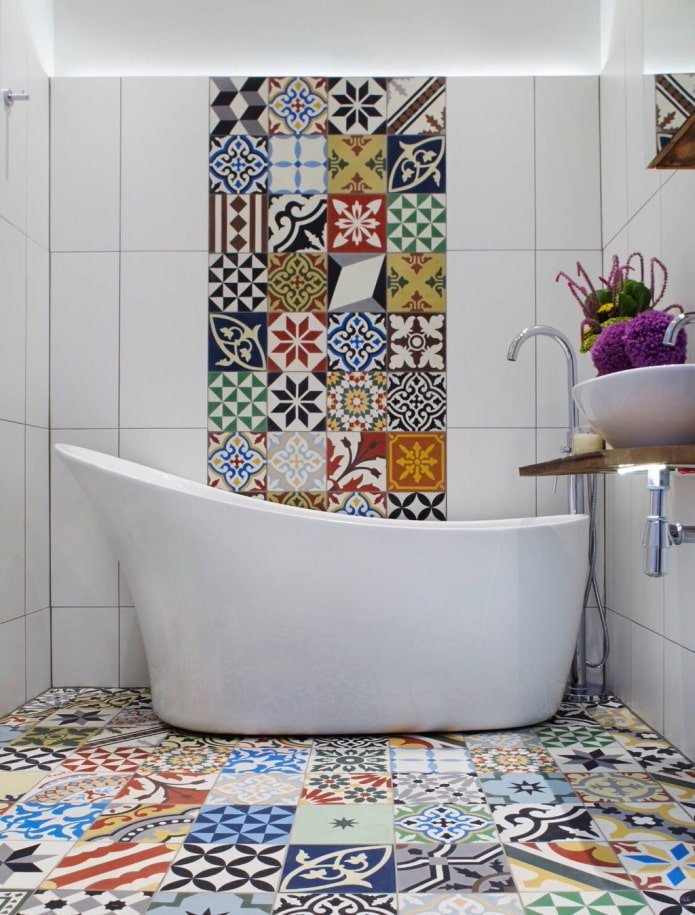
With patterns and ornaments
Painting with ornaments should be laid in a room with plain walls and furniture, so as not to overload the space.
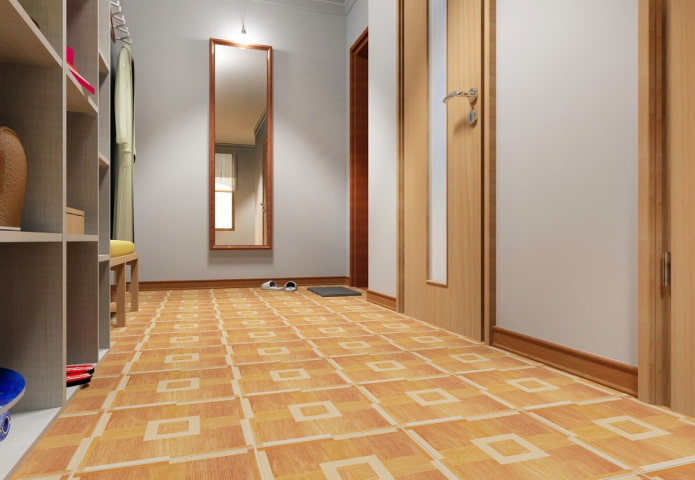
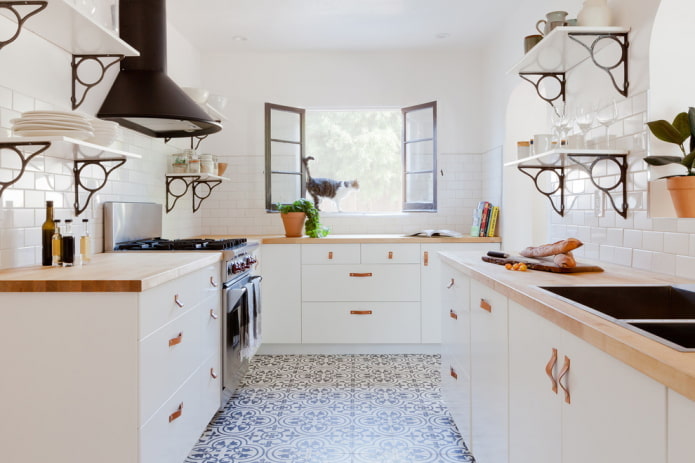
The photo shows a snow-white kitchen, where the patterns of semicircles echo the holders for the shelves.
Honeycomb or hexagon
Hexagons on the floor, fashionable in the 90s, are returning, but not in brown, but in bright colors:
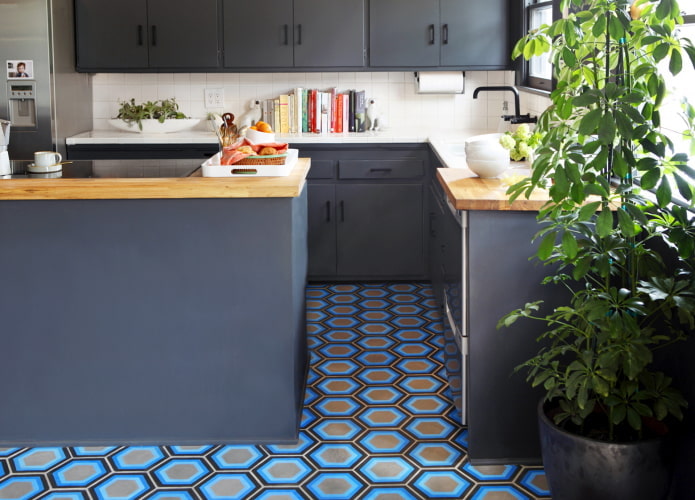
The photo shows imitation blue tiles, contrasting with the dark furniture.
Colors
The modern market offers linoleum with a palette for every taste. The exquisite black and white combination of tiles laid in a checkerboard pattern or diagonally remains popular.
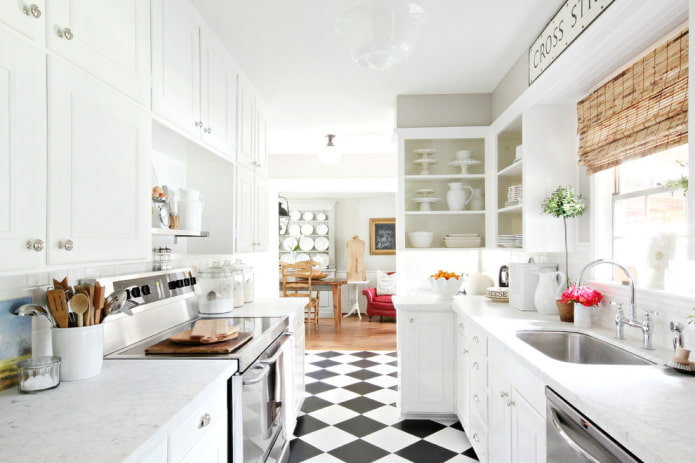
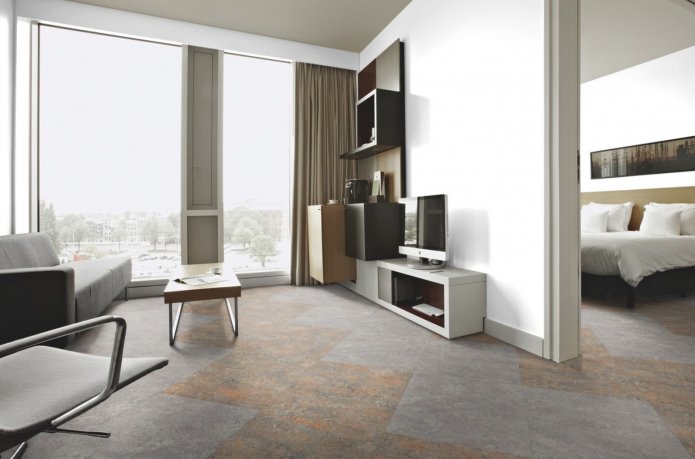
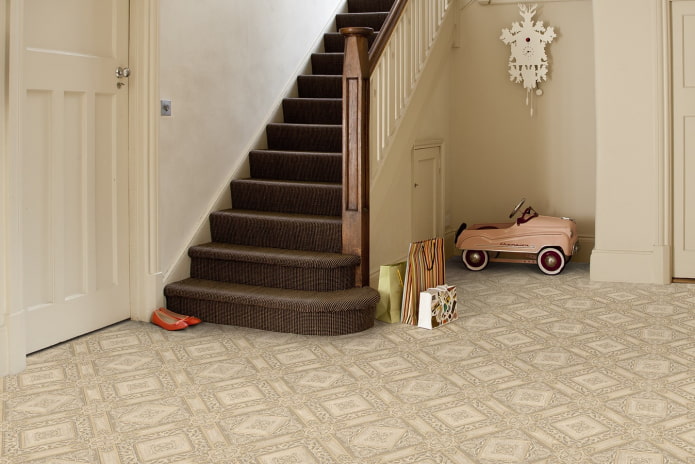
Light, pastel colors are also popular: gray, beige, white. Brown is used to imitate natural materials.
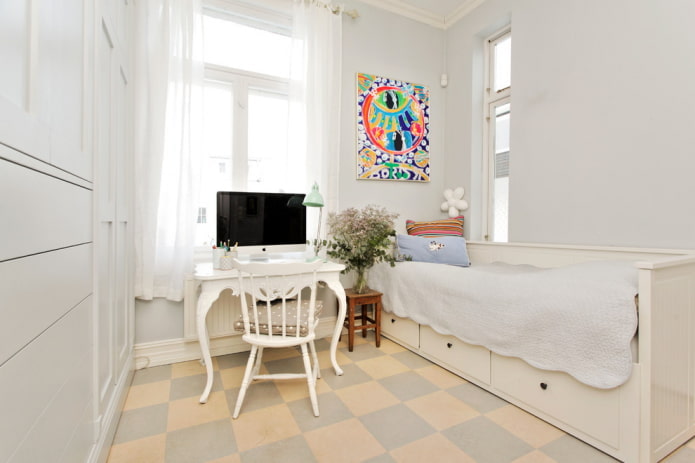
The photo shows a children’s room in delicate tones. The tiled flooring fits perfectly into a light interior.
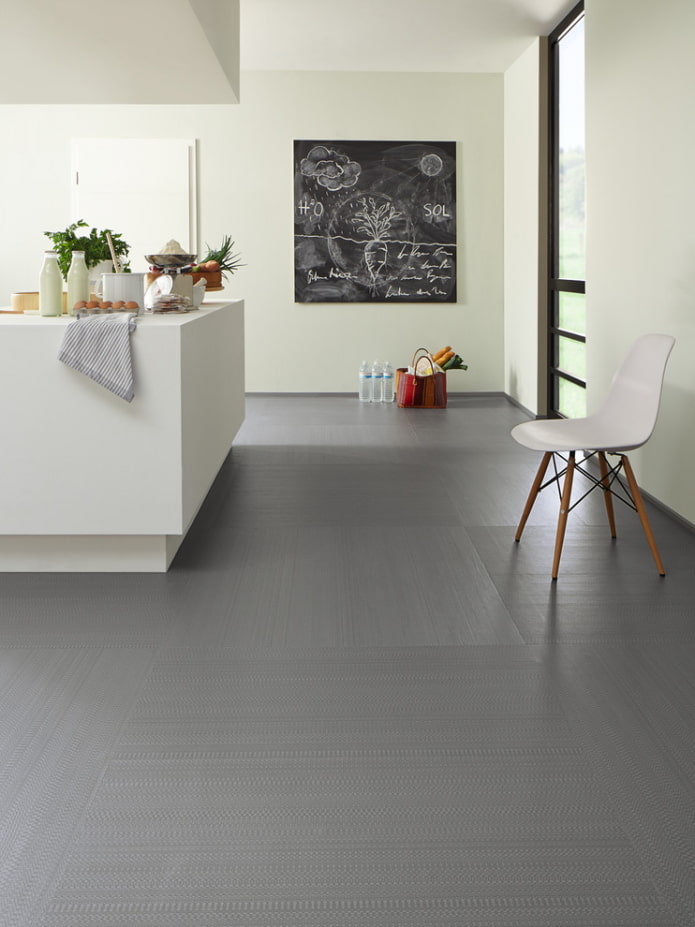
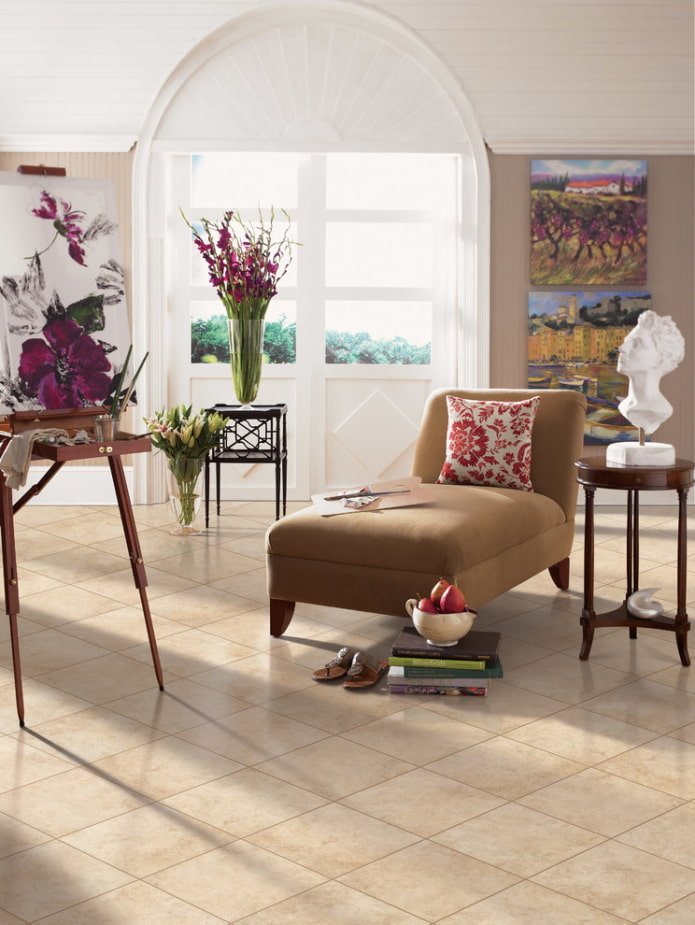
The original shades for flooring are purple, black and green. It is recommended to combine them with other, more restrained tones.
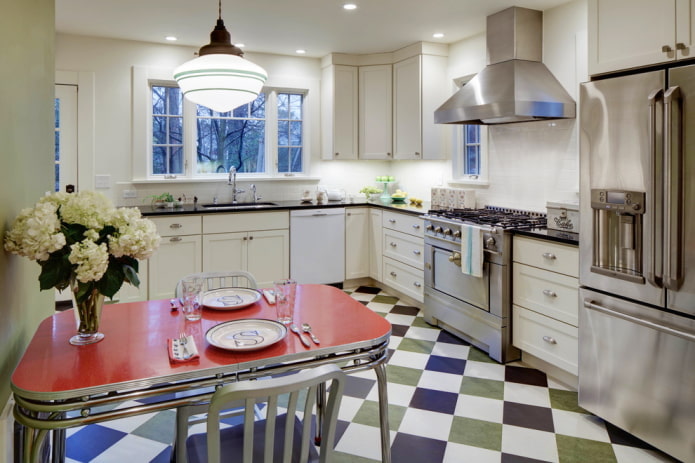
Photo of linoleum for the kitchen under the tiles
Linoleum under the tiles is a frequent guest in the kitchen, since this room is highly susceptible to contamination due to constant cooking. The checkered pattern is especially popular, and warm red shades add richness and home comfort to the interior.
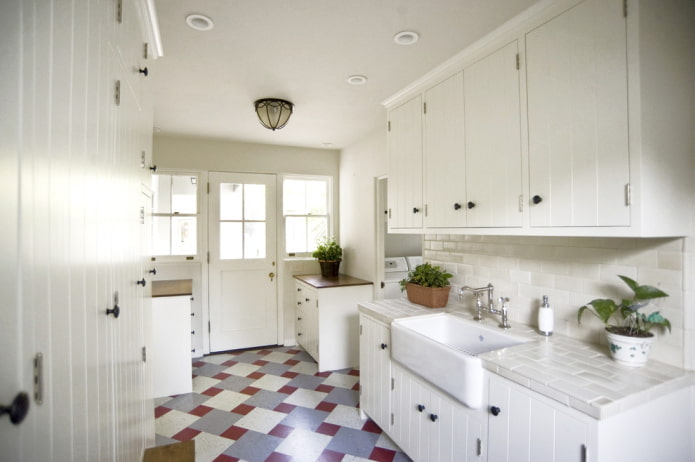
The photo shows a kitchen with a floor covering in the form of square tiles. Smooth, high-quality fabric retains its shine even in a room prone to frequent contamination.
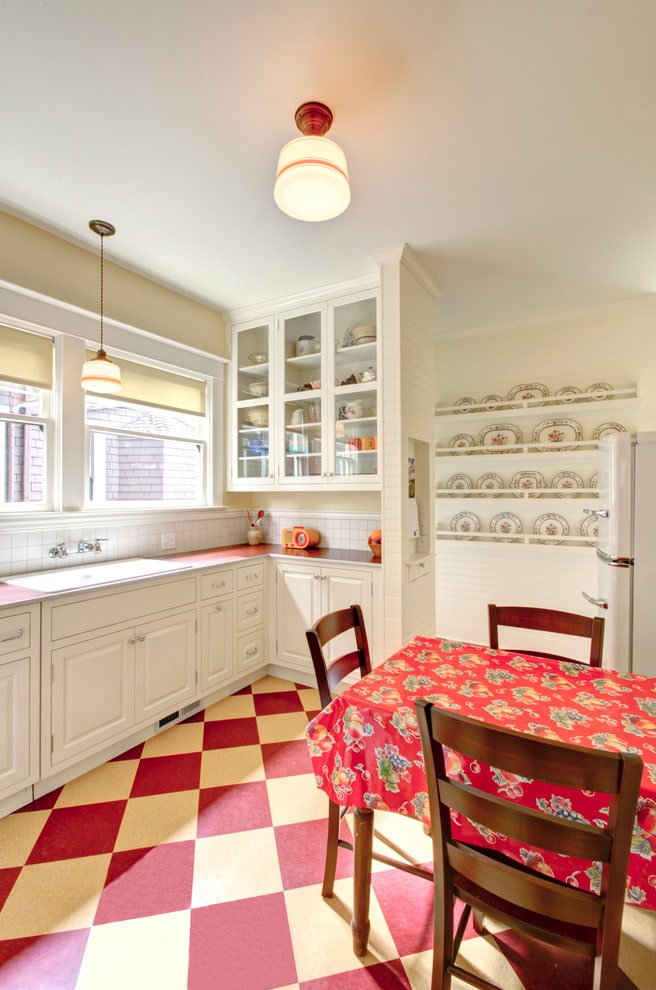
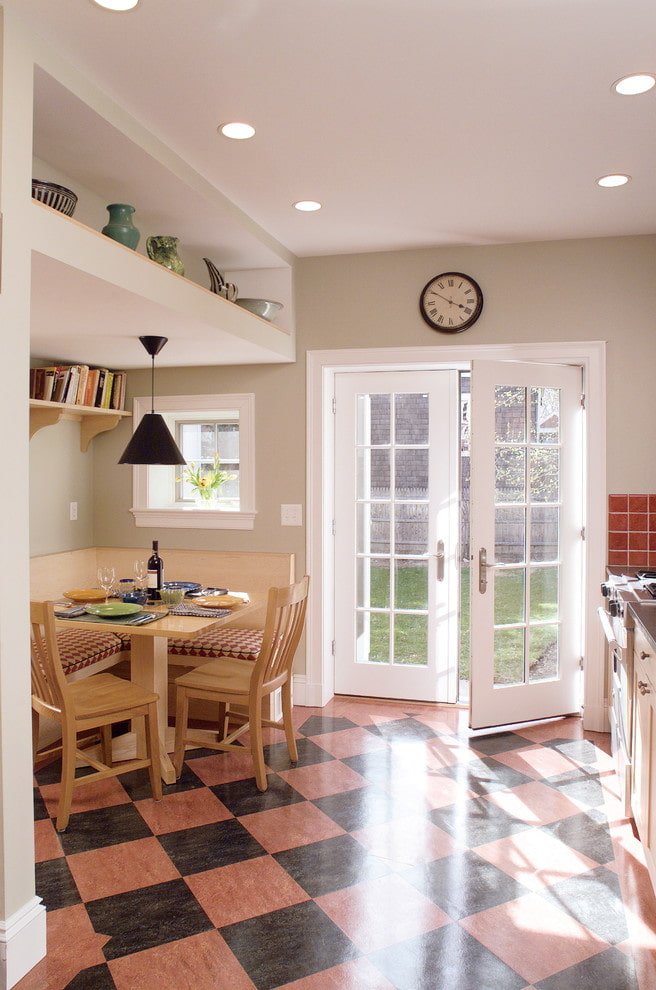
Floor imitating porcelain tiles does not lose its relevance. It is also attractive, but linoleum has an advantage – the absence of seams makes cleaning easier.
A common option is a canvas with patterns. They do not show dirt, but such an active floor will work well either in a large room or with neutral walls and furniture.
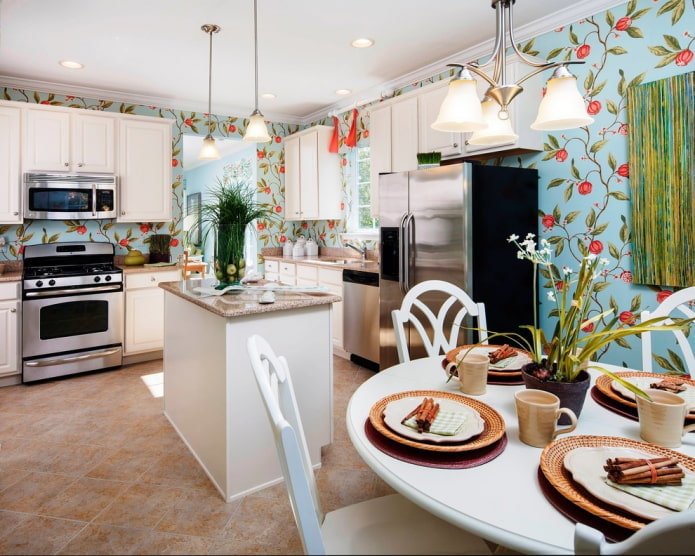
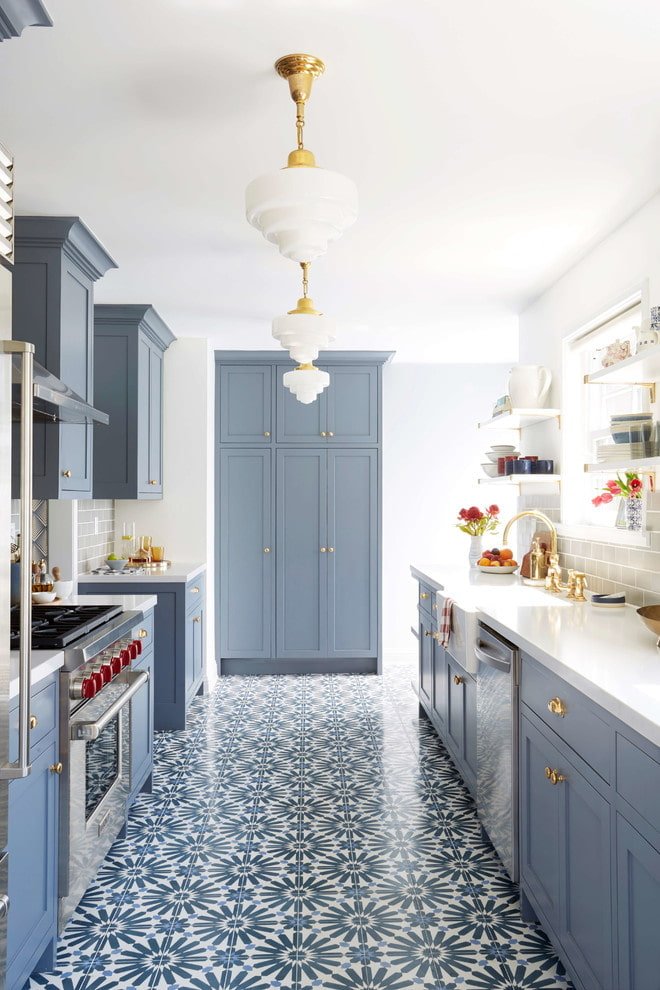
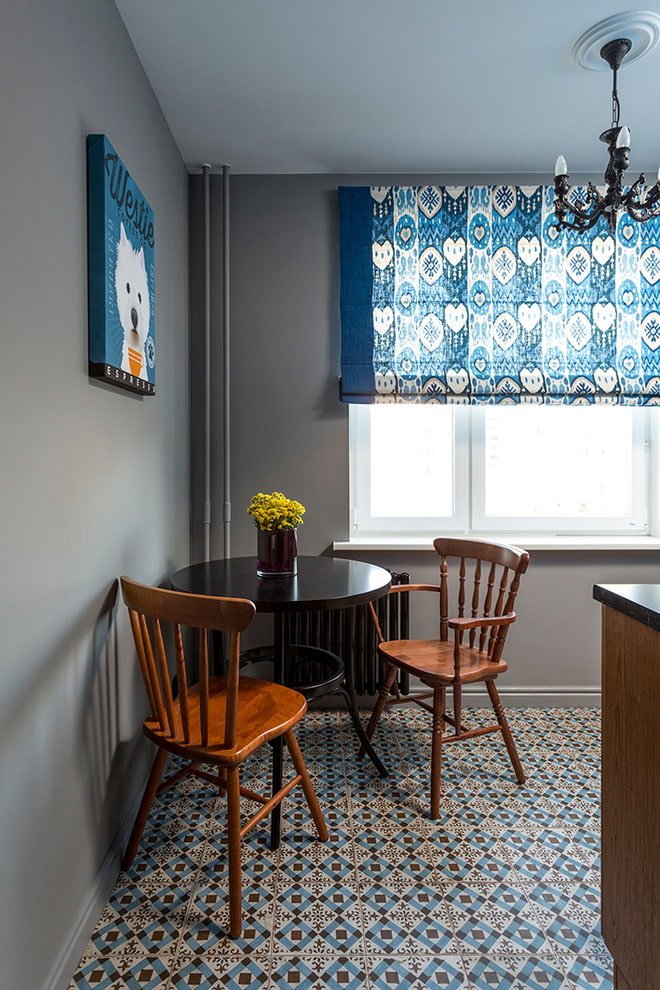
Unusual combinations of shades and shapes (for example, multi-colored mosaic) will be appreciated by creative people.
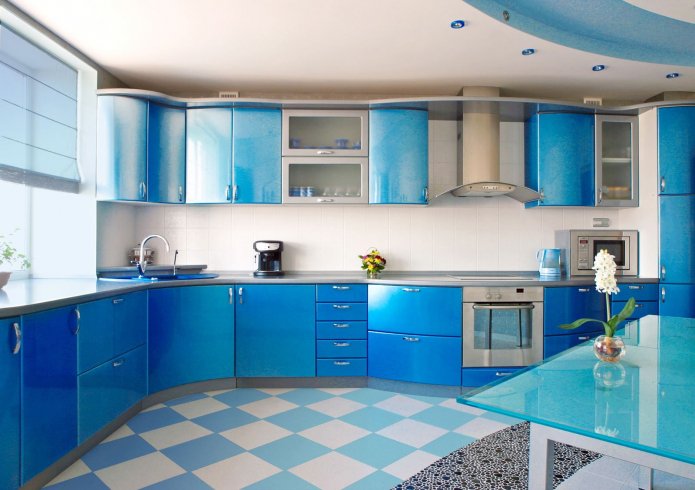
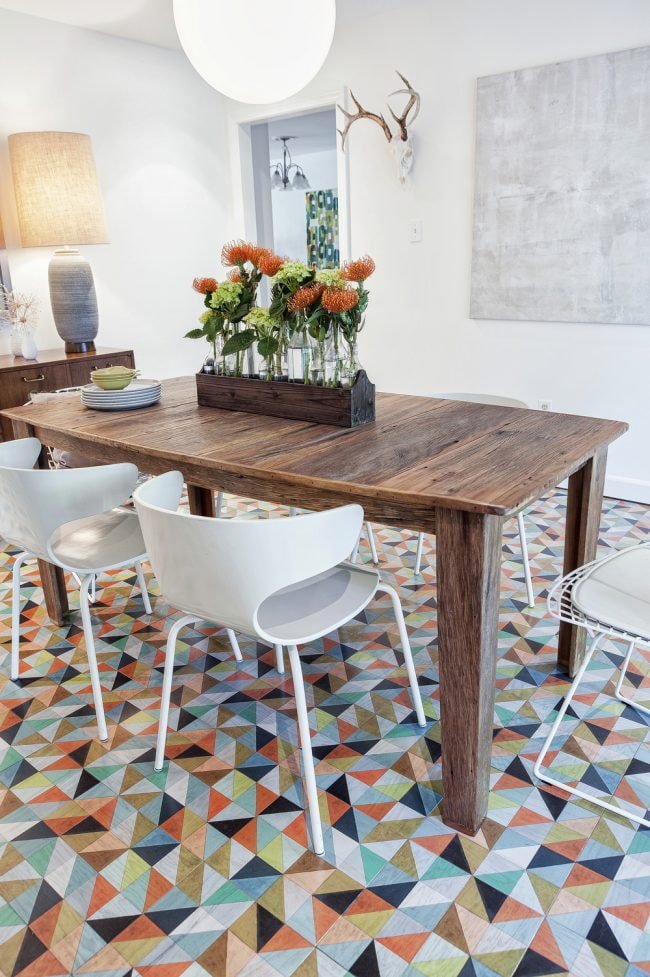
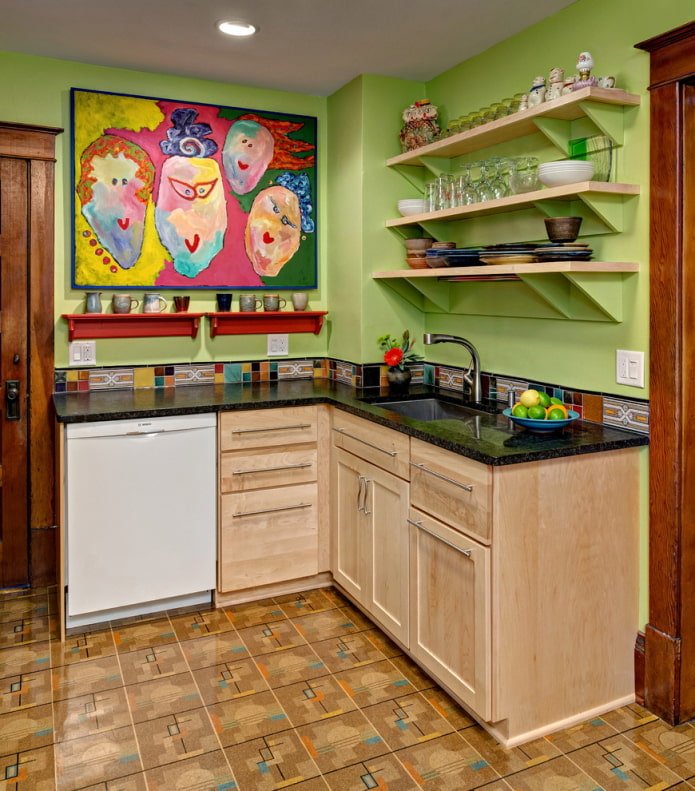
Ideas for linoleum in the bathroom interior
Visually, this type of flooring is hardly distinguishable from tiles. For special similarity, manufacturers even imitate tile seams. But unlike a tiled floor, linoleum is much nicer to the touch and warmer.
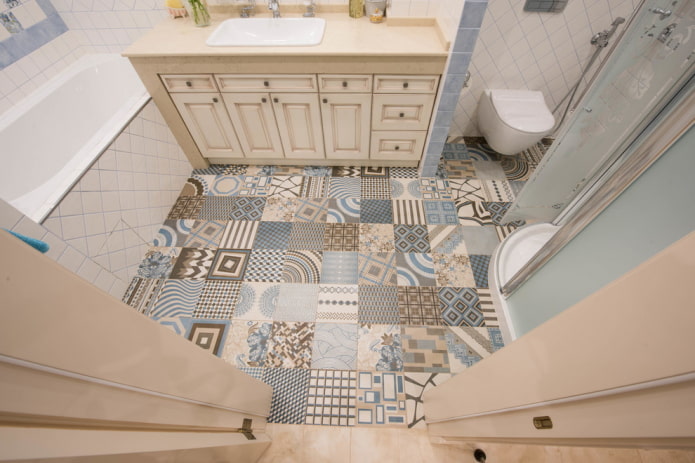
The photo shows a bathroom with linoleum under patchwork tiles.
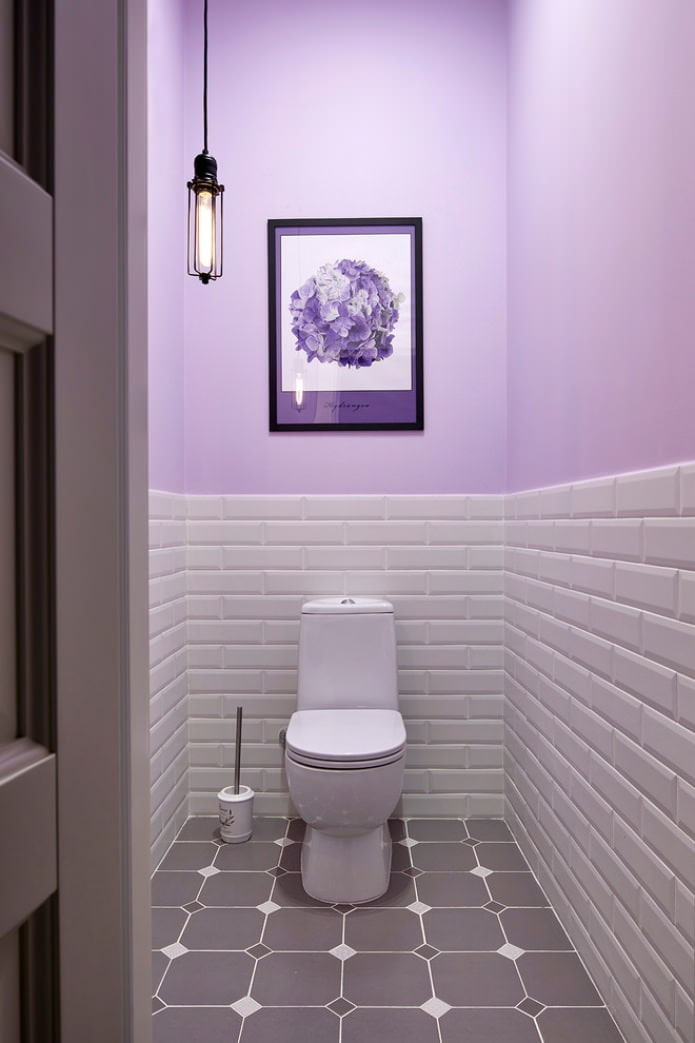
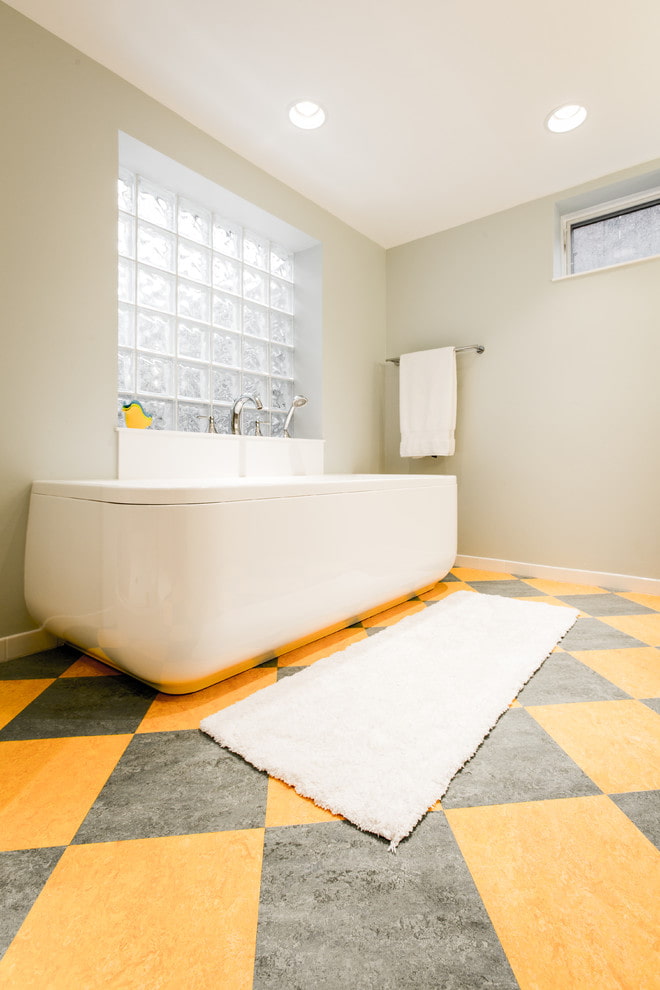
Linoleum is waterproof, so it is just as suitable for use in the bathroom and toilet as tiles, but it is much cheaper.
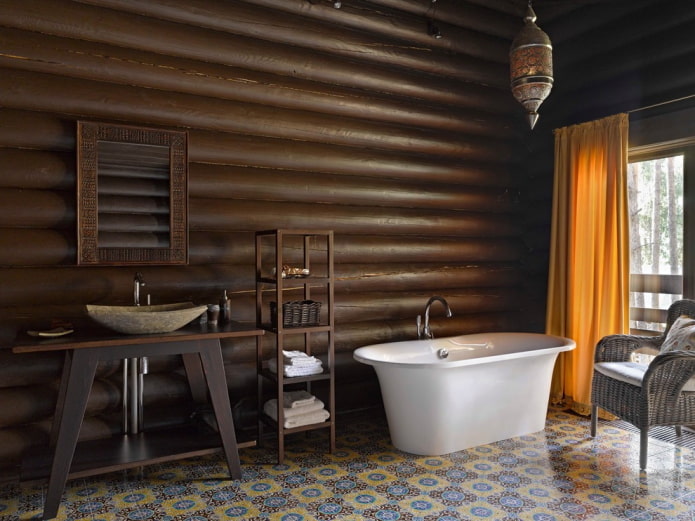
The photo shows a spacious bathroom in a country house, the floor of which is covered with linoleum.
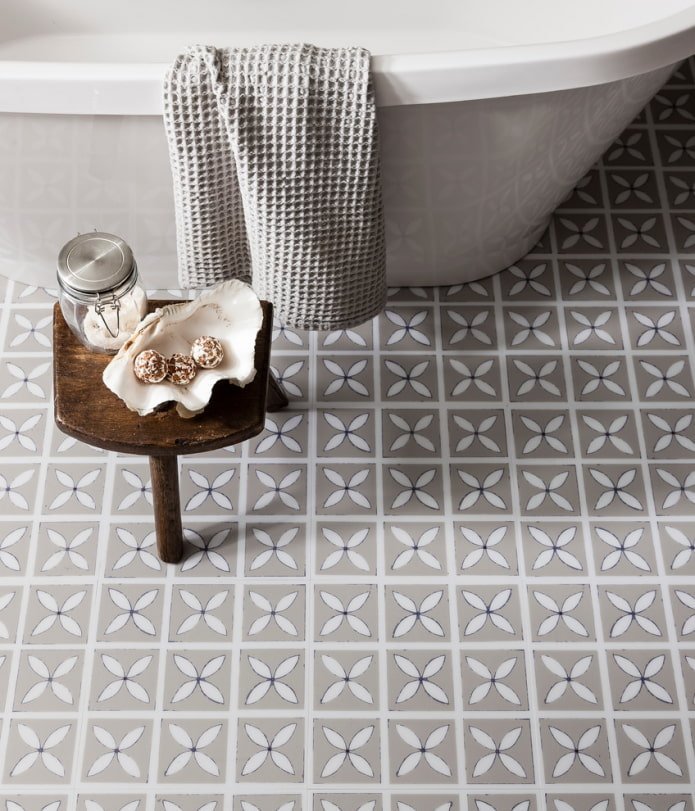
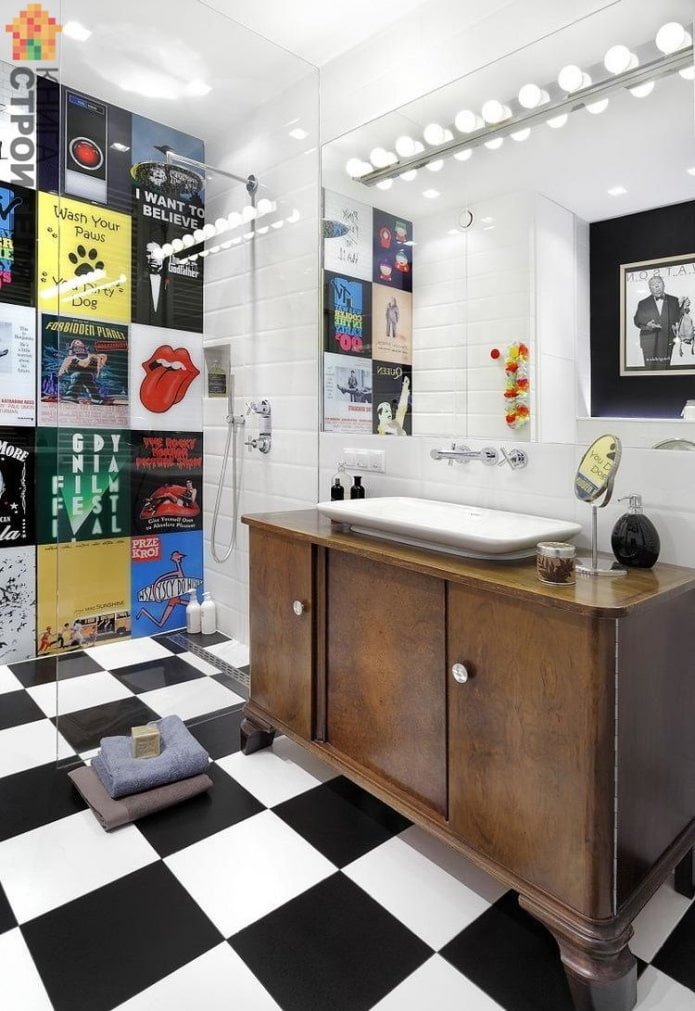
Examples of design in the hallway
Linoleum under the tile in the hallway is a practical covering that can withstand the aggressive effects of street dirt and chemicals.
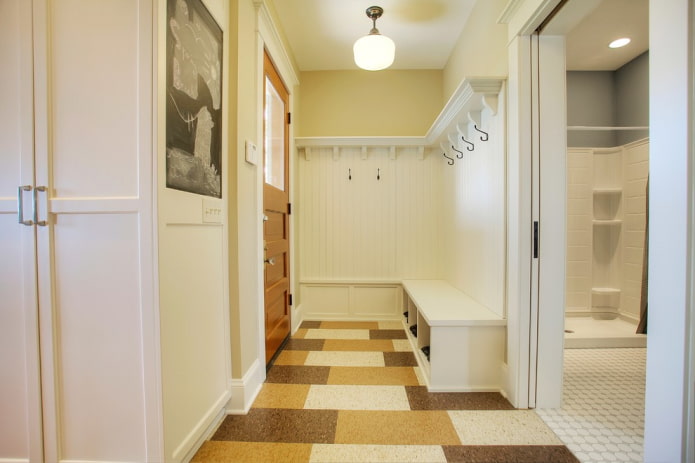
The photo shows an ergonomic floor in brown tones: damage and dirt are not noticeable on it.
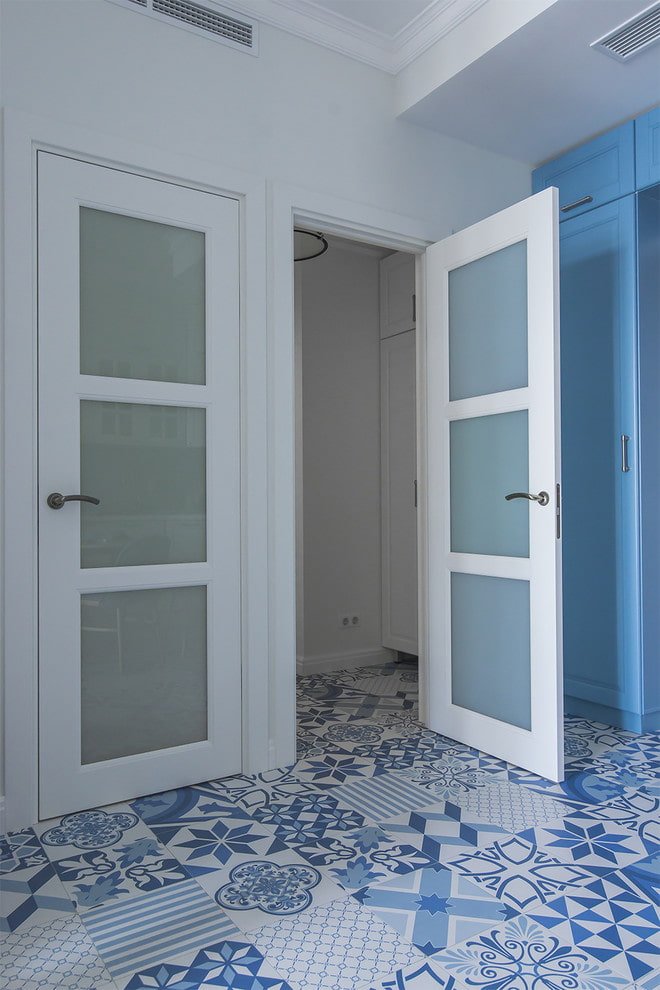
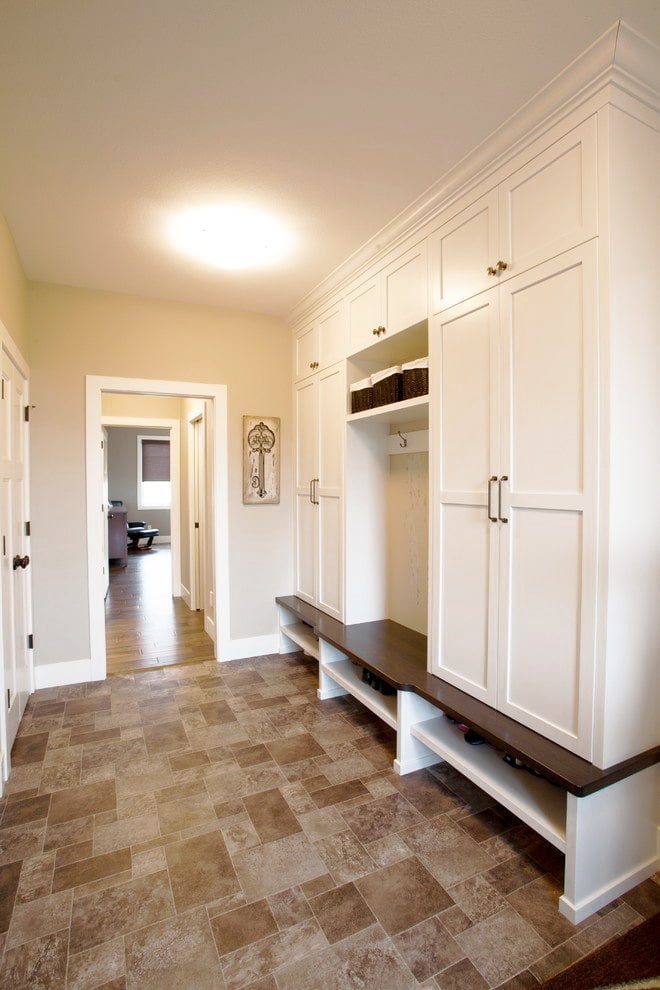
Now reading:
- Comprehensive Guide to Buying a Used Peugeot 208
- Balcony Design Ideas with Panoramic Windows (34 Photos)
- best alternatives to the oven in the country: what to replace the stove with?
- 25 types of orchids with pictures and names – classification by color, leaf shape and varieties.
- Your Ultimate Guide to Buying a Used Opel Grandland X